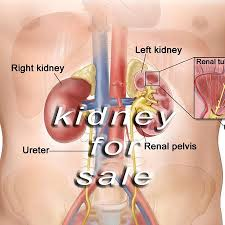The report, cited by Daily
Maverick, highlights the harrowing accounts of individuals like 30-year-old
Joseph Japina, who disclosed his involvement in kidney trafficking. Japina
recounted being introduced to an intermediary by the ISS, who persuaded him to
join a network facilitating kidney sales. This criminal syndicate allegedly
operates between Eldoret in western Kenya and Nairobi.
Japina, seduced by promises of
financial gain, agreed to donate his kidney in exchange for an advance payment
of $984 and an additional $984 worth of a Boxer motorcycle, a common vehicle
for boda boda, or motorcycle taxi, operations across Africa.
"After Japina's agreement,
he underwent tests at a private clinic in Eldoret. Following the assessments,
his kidney was surgically removed at another facility," reports the Daily
Maverick.
Speaking to ISS anonymously,
another intermediary revealed recruiting over 100 young men from the town of
Oyugis in southwestern Kenya in 2023 alone. Many of these recruits hailed from impoverished
backgrounds, seeking capital to initiate their businesses.
The chilling narrative sheds
light on a larger issue of organ trafficking in Kenya. Last year, the discovery
of over 400 bodies in the village of Shakahola raised concerns. Autopsies revealed
instances of organ removal, implicating suspects associated with the
International Church of the Good News, led by self-proclaimed pastor Paul
Mackenzie. Police investigations confirmed the involvement of the suspects in
forced organ removal.
While Kenya's Health Act
permits kidney donation for relatives or research, it fails to explicitly
criminalize the illicit organ trade, leaving a legal loophole exploited by international
criminal syndicates.
The World Health Organization
(WHO) took a stand against organ trafficking in 1987, leading many countries to
implement laws to curb this unethical practice. However, the persistence of
such trade underscores the urgent need for stronger enforcement and
international collaboration to protect vulnerable individuals from
exploitation.


Post a Comment